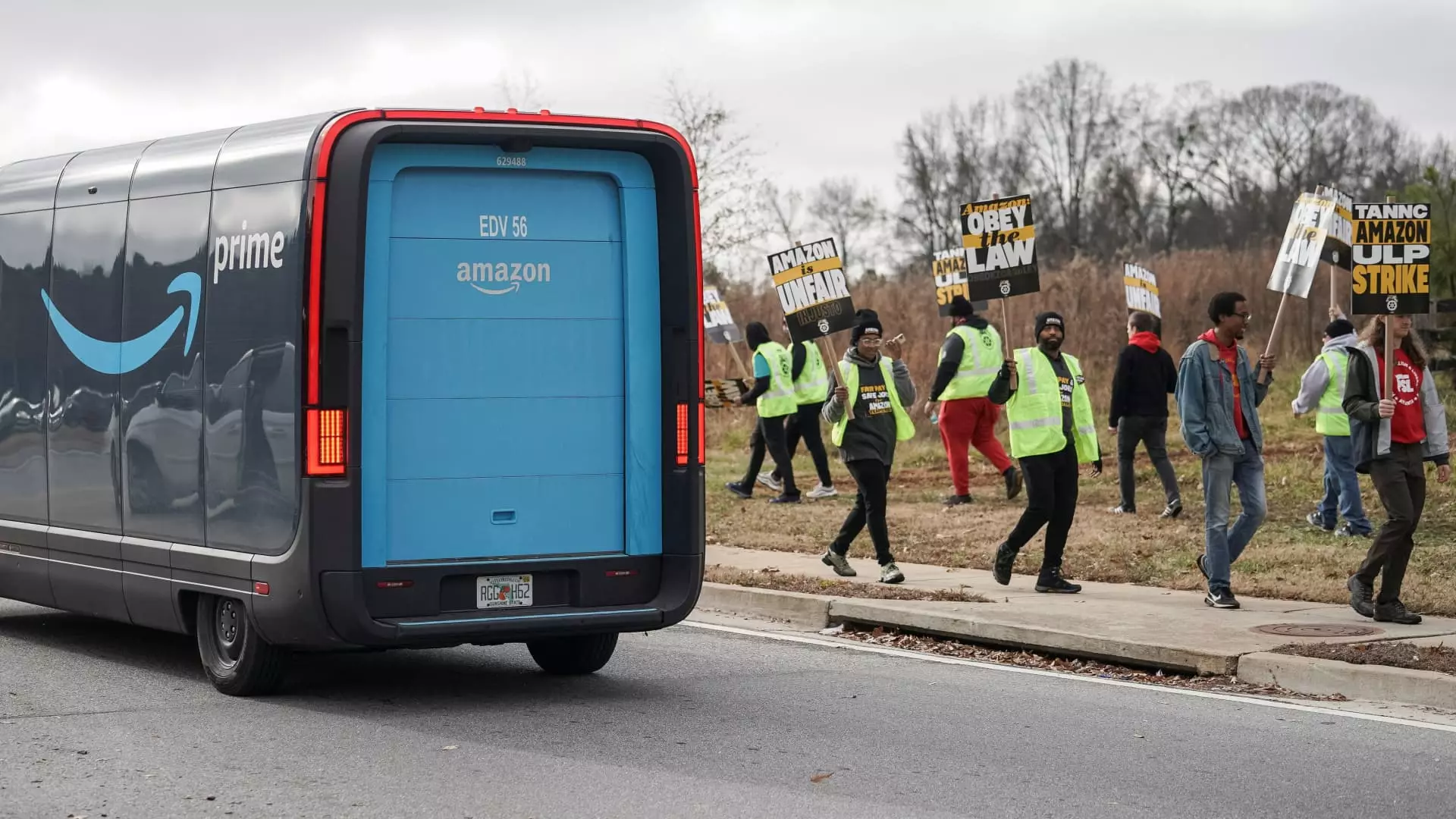In a significant move reflective of the growing discontent among Amazon employees, workers across multiple states initiated a strike that has garnered widespread attention. On Thursday, employees from seven Amazon facilities in key locations such as New York, Georgia, California, and Illinois took a stand for better working conditions. Spearheaded by the Teamsters union, this protest aims to push Amazon toward meaningful negotiations regarding wages, benefits, and workplace safety—issues that are critical for the well-being of its vast workforce.
This strike stands out due to its timing, strategically positioned during the bustling holiday shopping season. The Teamsters’ strategy suggests an awareness of the financial pressure that Amazon typically faces during this period, aiming to leverage that tension to bring management to the negotiating table. Union President Sean O’Brien highlighted the stark reality of Amazon’s operations, emphasizing that any delays in holiday deliveries could be attributed to what he termed the “insatiable greed” of the corporation, framing the conflict as one not just about labor rights but also about customer service and ethics.
In the wake of the strike, Amazon’s response has been vehement. The company dismisses the Teamsters’ narrative, alleging that the union is misleading the public by overstating their influence among employees. They claim that the majority of protestors are outsiders, distant from the experiences and grievances of actual Amazon workers. This assertion raises questions about the dynamics of labor organization within the company.
Despite Amazon’s attempts to downplay the protest, the curtain has been pulled back on ongoing labor tensions. The Teamsters support a coalition that reportedly enlists nearly 10,000 Amazon workers—an impressive figure, yet still a mere fraction of the 1.53 million employees the company boasts. This dissonance raises critical questions about the union’s effectiveness, long-term strategies, and the complexities of mobilizing workers in one of America’s largest and most litigious corporations.
This strike marks a pivotal chapter in Amazon’s history with labor unions. After years of resistance and opposition to unionization efforts, including a notable defeat during the Staten Island warehouse vote in 2022, the landscape is shifting. The Teamsters’ involvement signals an escalation in the fight for workers’ rights, with the recent inclusion of the Amazon Labor Union in their ranks. This collaboration seems to be a strategic move aimed at addressing challenges that smaller unions have faced when up against Amazon’s considerable resources and legal expertise.
The historical context cannot be underestimated; workers have increasingly found their voices concerning workplace conditions. The narrative of labor rights is evolving, driven by a collective realization that the fight extends beyond basic wage demands. It is now about dignity, respect, and the fundamental need for safer working environments.
The ongoing strike and its implications could shape the future of labor relations at Amazon and beyond. As the situation unfolds, it will become crucial to watch how both sides navigate this confrontation, particularly in an era where labor rights are increasingly spotlighted. For Amazon, maintaining its operational efficiency during the holiday season while engaging with a burgeoning labor movement presents a considerable challenge. For workers and their unions, the stakes are equally high; their chance to secure better working conditions and compensation may hinge upon the outcome of this pivotal moment in labor history.

